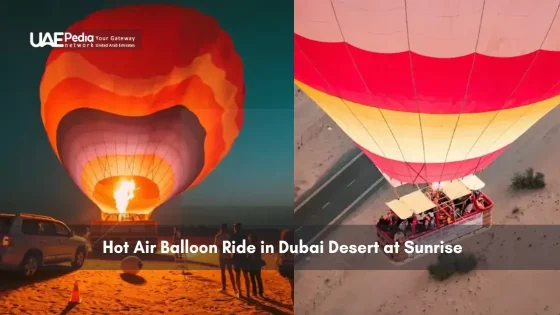Think the UAE is all desert dunes and skyscrapers? Think again. Tucked along the coast lies a hidden world where tangled roots meet crystal waters—a living ecosystem waiting to be explored.
This isn’t your average paddle trip. Guided tours here blend quiet moments under mangrove canopies with after-dark magic—imagine bioluminescent ripples lighting your path like liquid stars. Whether you’re navigating calm channels at sunrise or joining a glow-night session, every stroke reveals something new: darting fish, nesting birds, or the soft crunch of crabs scuttling through mudflats.
Local outfitters prioritize safety without skimping on wonder. Expert guides share stories about these salt-tolerant forests—how they protect coastlines, shelter wildlife, and even fight climate change. You’ll glide past islands few tourists see, learning to read tides and spot egrets mid-hunt.
Why choose this adventure? It’s equal parts zen and thrill. Morning tours offer meditative calm, while sunset paddles paint the sky in apricot hues. Night explorers get front-row seats to nature’s light show. And with options for all skill levels, even first-timers leave feeling like pros.
- Discover a secret side of the Emirates where water shapes life
- Choose between serene daytime paddles or glowing night expeditions
- Learn coastal ecology from passionate local guides
Experience the Thrill of an abu dhabi mangrove kayaking tour
Ever glide through water that sparkles like stardust? While other regional water sports focus on speed, this journey prioritizes connection—with nature, culture, and hidden ecosystems. Operators here craft more than trips; they design eye-opening encounters where every ripple tells a story.
Curated Moments, Not Checklists
Unlike typical jet-ski rentals or crowded boat tours, these small-group expeditions thrive on spontaneity. Guides pause to point out fiddler crabs performing mating dances or explain how mangroves filter saltwater. You’ll learn paddle techniques, sure—but also gain skills to identify bird calls or predict tidal shifts.
| Activity | Unique Feature | Best Time | Guide Included |
|---|---|---|---|
| Kayaking Tour | Bioluminescent nights | Sunset/Night | Yes |
| Jet Skiing | High-speed thrills | Daytime | No |
| Paddleboarding | Calm water exploration | Morning | Optional |
Guardians of the Ecosystem
Every participant gets a crash course in “leave no trace” principles. Tours use sit-on-top kayaks that minimize environmental impact, and guides collect microplastics during breaks. It’s adventure with purpose—you’ll leave knowing your visit helped protect these vital habitats.
After-dark excursions take safety seriously. Each kayak has waterproof LED lights, and groups stay close enough to share discoveries (“Check out the glowing comb jellies!”). Whether you choose golden-hour paddles or moonlit routes, guides ensure you’re equipped—and enthralled.
Discover Abu Dhabi’s Verdant Mangrove Ecosystems
Step into a world where emerald canopies rise from shimmering lagoons—a living labyrinth that’s survived arid climates for millennia. These salt-tolerant forests aren’t just pretty scenery; they’re climate warriors, coastal guardians, and nurseries for marine life all rolled into one.

Natural Beauty and Local Wildlife
Glide through narrow channels where sunlight filters through tangled roots. You’ll spot darting schools of silver fish, pink-flushed flamingos wading in shallows, and mudskippers—those funny amphibious fish that walk on land. Keep an eye out for:
| Species | Habitat Zone | Best Viewing |
|---|---|---|
| Greater Flamingo | Shallow waters | Winter mornings |
| Collared Kingfisher | Canopy branches | Sunset hours |
| Fiddler Crab | Mudflats | Low tide |
Guides often whisper fascinating tidbits: how mangrove roots filter salt, or why herons stand statue-still for hours. It’s like attending a live nature documentary—with you in the front row.
Conservation Efforts in Action
These forests aren’t just admired—they’re actively protected. Local initiatives have planted over 500,000 new trees since 2020. Tours fund clean-up drives and sensor-based water monitoring. “Every visitor becomes a conservation partner,” explains a Jubail Mangrove Park ranger.
You’ll learn how these ecosystems:
- Absorb 4x more carbon than rainforests
- Reduce coastal erosion by 70% during storms
- Shelter 60+ fish species crucial to local fisheries
By joining a guided paddle, you’re not just sightseeing—you’re helping safeguard a national treasure. Now that’s what we call leaving positive ripples!
Embrace a Unique Water Sports Adventure
Who says desert coasts can’t host epic water play? The shimmering channels here transform into a playground where sleek kayaks slice through calm waters, paddleboards glide under golden sunsets, and silent electric boats let you explore without disturbing a single crab. You’ll find options that cater to every style—whether you’re paddling solo or laughing with friends.
Diverse Offerings: Kayaking, Boat Cruises, and SUP
Local operators blend classic adventures with fresh twists. Stand-up paddleboarding (SUP) sessions double as sunset yoga classes. Eco-friendly dragon boats—powered by quiet electric motors—let groups cruise mangrove tunnels while guides share stories about the ecosystem. Families love the boardwalk tours, where you can hop off to explore hidden coves.
Popular choices include:
- Glow-in-the-dark paddleboarding after sunset
- Private boat charters with onboard Emirati coffee tastings
- Beginner-friendly SUP lessons on glassy morning waters
Customer Stories and Top-Rated Services
“Our guide turned my shaky paddle into pure confidence within minutes!” raves Sarah, a traveler from Colorado. Reviews highlight how staff remember names, adjust routes for wildlife sightings, and even snap candid photos for guests. One family’s “hilarious failed paddle attempts” became their trip’s favorite memory.
Operators here treat every outing like hosting friends. Need a last-minute reservation? They’ll find a slot. Prefer birdwatching over speed? Guides swap routes instantly. It’s this mix of flexibility and heart that fills social media feeds with 5-star tags and “We’re coming back!” promises.
Insider Tips for a Memorable Mangrove Kayaking Trip
Ready to trade desert heat for tranquil waters? Timing and preparation turn a good outing into an unforgettable one. Here’s how to sync your adventure with nature’s rhythms while packing smart for salty splashes and sun-kissed exploration.
Best Time to Experience the Mangroves
November through March delivers cooler temps (70-85°F) and active wildlife. Aim for high tide—deeper channels mean smoother paddling. Early birds catch herons hunting breakfast, while sunset seekers witness skies melting into rose-gold hues. Pro tip: Check lunar calendars. New moon nights intensify bioluminescent displays!
What to Bring and What to Expect
Essentials fit in a dry bag: reef-safe sunscreen, wide-brim hat, and a reusable water bottle. Guides provide kayaks, life vests, and bottled water. Wear quick-dry clothes—you’ll get splashed! Water shoes protect feet from oyster beds during rest stops.
First-timers often ask: “Will I capsize?” These stable sit-on-top kayaks rarely flip. Guides tailor routes to group stamina, mixing paddling with ecology talks. One ranger advises: “Pack curiosity over perfection—nature’s surprises beat any scripted tour.”
Skip heavy cameras—your phone (in a waterproof case) captures flamingo sightings just fine. Post-trip, rinse gear with provided freshwater showers. Most tours last 2-3 hours, letting you pair paddling with beach lunches or city sightseeing.
Exploring Abu Dhabi’s Reem Island and Eastern Mangroves
Beyond the kayak’s bow lies a seamless blend of urban energy and wild tranquility—welcome to the city’s dual charms. Reem Island dazzles with sleek towers framing green spaces like Reem Central Park, where jogging trails wind past splash pads and interactive art installations. Just 15 minutes east, the Eastern Mangroves whisper stories of ancient ecosystems thriving beside modern marvels.
Where Urban Meets Untamed
Reem Island isn’t just a business hub—it’s a gateway to leisure. Families love the park’s butterfly garden and open-air cinema nights. Foodies rave about waterfront cafes serving karak chai with skyline views. “You get Manhattan vibes with Emirati soul here,” says a local tour operator.
The Eastern Mangroves offer quieter discoveries. Guided walking tours reveal hidden coves where herons nest, while sunset boat cruises glide past luxury hotels backdropped by rustling forests. Don’t miss the Jubail Mangrove Park boardwalk—it lets you explore tidal zones without getting wet.
| Activity | Reem Island | Eastern Mangroves |
|---|---|---|
| Family-Friendly | Splash pads, cinemas | Boardwalk tours |
| Nature Focus | Urban parks | Birdwatching hubs |
| Dining | Waterfront cafes | Eco-friendly picnics |
Craving more water sports? Try electric boat rentals or moonlight paddleboarding sessions. These areas prove Abu Dhabi masters the art of contrast—where futuristic cityscapes and primal forests coexist in perfect harmony.
Plan Your Water Adventure with Top-Rated Local Services

Ready to dive into Abu Dhabi’s aquatic playground? Local providers make booking your splash session effortless. With digital platforms offering instant confirmations and flexible scheduling, you’ll secure your spot faster than a cormorant snags its lunch.
Affordable Packages and Easy Booking
Companies here specialize in value-packed deals. Choose from half-day excursions to multi-activity bundles—all priced to keep your wallet happy. One family package even includes free kids’ snorkel gear rentals. “We booked online during breakfast and were paddling by noon!” shares Mark from Texas.
| Package Type | Features | Duration | Price Range |
|---|---|---|---|
| Family Fun | 2 activities + safety gear | 3 hours | $45-$65 |
| Corporate Team | Custom challenges + lunch | 4 hours | $75-$110 |
| Friends Adventure | 3 water sports + photos | 5 hours | $90-$130 |
Tailored Experiences for Groups
Whether you’re bonding with coworkers or laughing with buddies, operators craft unique itineraries. Combine paddleboarding races with sunset cruises, or add a cultural twist—some services include Arabic coffee breaks on private beach setups.
Recent travelers praise how guides adapt to group dynamics. “They turned our office team-building into an epic water Olympics,” recalls Dubai-based manager Layla. With 24/7 chat support and last-minute add-ons, these experts handle details so you can focus on making waves.
A Final Look at Abu Dhabi’s Ultimate Water Sports Journey
Imagine swapping city skylines for silent waterways where every paddle stroke reveals nature’s secrets. This journey blends heart-pumping water sports with quiet moments of awe—where ancient forests meet modern eco-conscious exploration.
Glide through protected wetlands where roots weave stories older than skyscrapers. By day, spot herons stalking fish in sun-dappled channels. By night, watch water shimmer like liquid galaxies. Local services elevate trips with expert guides who decode tidal patterns and wildlife habits while prioritizing conservation.
Whether you’re racing friends on stand-up paddleboards or drifting through bioluminescent bays, these experiences redefine desert coastlines. Affordable packages cater to thrill-seekers and zen-searchers alike—sunset boat cruises, family-friendly SUP lessons, or corporate team-building challenges.
What stays with you? Laughter echoing across glassy waters. The pride of spotting rare birds before anyone else. Trusted companies turn outings into memories that outlast souvenir photos. Ready to write your own chapter in this liquid playground? The forest awaits—and every ripple promises discovery.
The experience suits most fitness levels! Tours are paced for leisure, with guides adjusting routes based on tides and group energy. You’ll glide calmly, soaking in sights while getting a light upper-body workout—no prior kayaking skills needed.
Absolutely! Family-friendly operators provide stable tandem kayaks, child-sized life jackets, and patient instructors. Many tours even offer sunset paddles or shorter routes perfect for first-timers craving gentle adventure.
Keep eyes peeled for herons skimming the water, fiddler crabs scuttling along roots, and flashes of fish beneath your kayak. Seasonal visitors like flamingos sometimes drop by—guides share fun facts about these ecosystems’ delicate balance.
Yes! Mix it up with stand-up paddleboarding (SUP), electric boat cruises, or guided group expeditions. Some providers combine kayaking with cultural add-ons like Arabic coffee tastings or visits to nearby Reem Island parks.
Responsible operators partner with local environmental groups, often including educational talks and optional tree-planting activities. Your booking fee might contribute to habitat restoration—ask providers about their sustainability initiatives.
October to April offers cooler temps (20–30°C), but early morning summer tours work too! Winter brings migratory birds, while summer’s glassy waters reflect stunning golden-hour hues. Check operators’ seasonal schedules for hidden gems.
Many companies cater to teams, families, or special occasions—think sunrise proposals or corporate team-building. Discuss route lengths, catering add-ons, or photography packages when booking your tailored adventure.


















